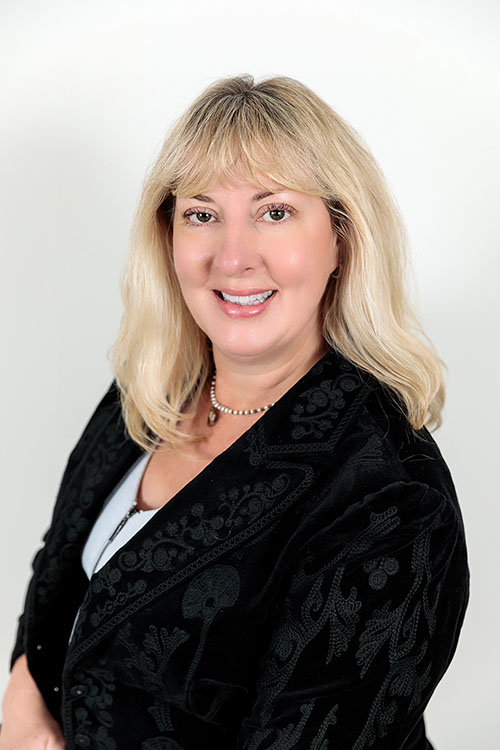In January 2018, veteran NP and long-time RNAO member Michelle Acorn became Ontario’s provincial chief nursing officer (PCNO). She arrived at Queen’s Park with three decades of nursing experience in various roles at Lakeridge Health in Whitby and Oshawa, and a commitment to life-long learning that includes a doctor of nursing practice (DNP) degree from D’Youville College and four years as a lecturer at the University of Toronto.
As PCNO, Acorn is tasked with providing leadership and strategic advice to the government and Ontario Public Service (OPS) on a wide range of nursing issues.Registered Nurse Journal caught up with her to discuss her career, the transition into this role, and her vision for the future of nursing in Ontario.

Registered Nurse Journal (RNJ): Tell us about why you got into nursing.
Michelle Acorn (MA): My nursing path was influenced from birth. I was named Michelle after a nurse who made a difference for my mother when I entered this world. I was also fortunate enough in my early teens to work inlong-term care. It was a privilege to learn from, support and care for seniors.
RNJ: Why did you want to become Ontario’s chief nurse, and what does this appointment mean for your career?
MA: Three or four colleagues sent me the job posting and encouraged me to apply. I thought: This role is everything I want to do right now, and what a difference I can make in terms of impact on the nursing community.
(Getting the job was) surreal. It’s exciting to think about what an amazing opportunity this will be. At the same time, you can’t imagine what it was like to leave Lakeridge Health after 29 years and four months. (Working in a hospital), I can make a difference at a clinical level. But I wanted to make a difference from a leadership role in terms of strategic planning and decision making.
RNJ: As an NP, you’re certified in both primary care and adult care. You have also held many leadership roles, and have taught nursing at the university level. How will this diverse experience influence your work?
MA: I have experience across all health sectors, including acute and post-acute care in hospitals, primary care clinics, corrections, and long-term care. That unique blend of advanced nursing practice as a clinician, educator, scholar, innovative leader and systems influencer will help shape my role as PCNO.
Thanks to my experience, I also understand (Ontario’s nurses) and can relate to them. I remain practising clinically...in the community…and I do some correctional work with young offenders. I think that’s important. I need to be able to connect with patients, connect with families, and connect with all classes of nurses to be on the leading edge of information and change. That’s going to impact my advice (to the ministry).
RNJ: Tell us about your first few months in the role, and your goals going forward.
MA: My early focus was building our team and establishing the office of PNCO (as well as) engaging and connecting with nurses. Navigating the OPS is a little daunting as a newcomer, but I am learning and figuring my way through.
A priority focus (going forward) will be to strengthen and forge key relationships with both internal and external nursing partners as well as others in the broader health-care community. (I am also) liaising with other jurisdictional PCNOs and nursing leaders across the province and Canada, because I need to make sure I know my partners. We are currently mapping the nursing landscape and horizon to pin down specific goals. I’m only a few months into it, (but) we know exactly where we want to go.
RNJ: What are some major challenges facing nursing and health care in Ontario that you want to tackle as the province’s chief nursing officer?
MA: A key challenge (is) preventing violence in the workplace. Nurses are being hurt and harmed, and we have to think about their safety. We need to make appropriate policy to prevent violence against nurses and have safety checks in place. In my first month as PCNO, I was named the divisional leader of a joint task force between the ministry of health and ministry of labour (seeking to address violence against health workers).
Additionally, our nursing workforce is aging. Health workforce planning, (including) recruitment and retention will be pivotal, especially in rural, remote and underserviced areas.
(Working in a hospital), I can make a difference at a clinical level. But I wanted to make a difference from a leadership role in terms of strategic planning and decision making.
RNJ: How will your history of involvement with RNAO help you in this new role?
MA: I have been an active member of RNAO since my graduation in 1987. As past-president of the Nurse Practitioners’ Association of Ontario (NPAO) (while it was an interest group of RNAO), I acquired leadership and governance experience. Opportunities to co-chair RNAO best practice guidelines, and as a member of the expert working group created by RNAO to develop the NP utilization toolkit, shaped further expertise to inform my PCNO role. I have a respectful relationship and have received support from RNAO and other nursing associations in the past, present and into the future.
RNJ: What advice do you have for other nurses looking to enter leadership positions?
MA: Go outside of your clinical comfort zone. Start slowly by getting involved in committee or council work. Grab opportunities to participate in working groups or in advisory capacities. Embrace the opportunity to be a preceptor, charge nurse, team leader, program champion or educator. Secure a mentor for coaching and leadership development. Get involved in professional organizations and external LHIN activities. Have those courageous conversations, challenge the status quo, and be a disruptive innovator.
RNJ ACCESS
You are only one quick step away from full access to all RNJ content.
Already an RNAO member? Log in
